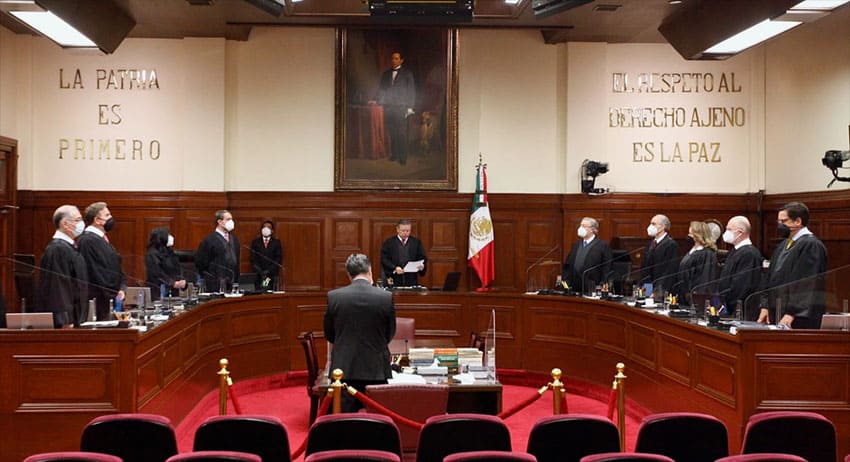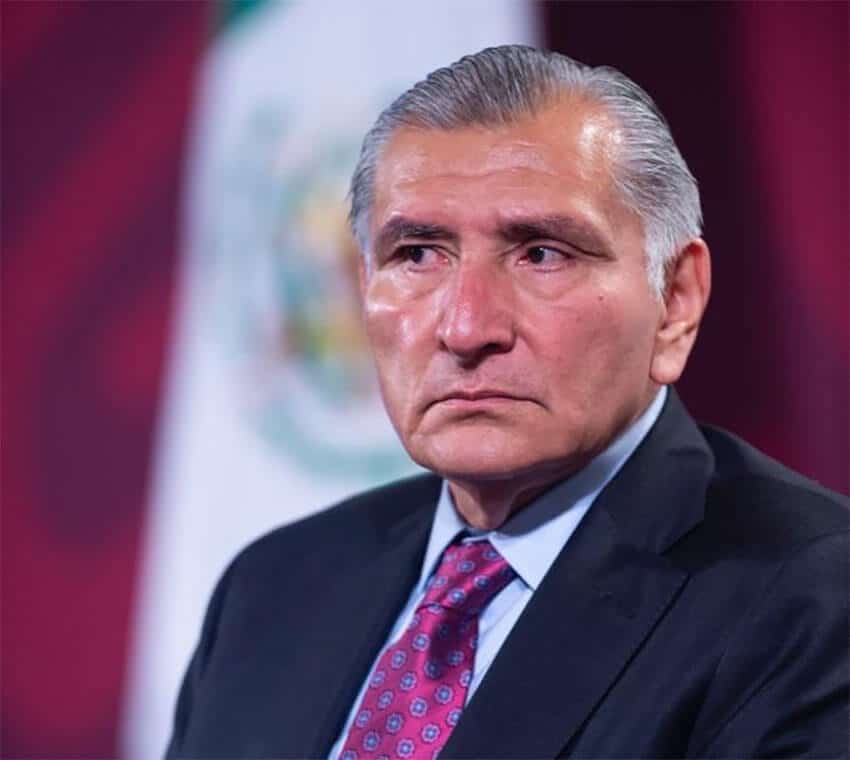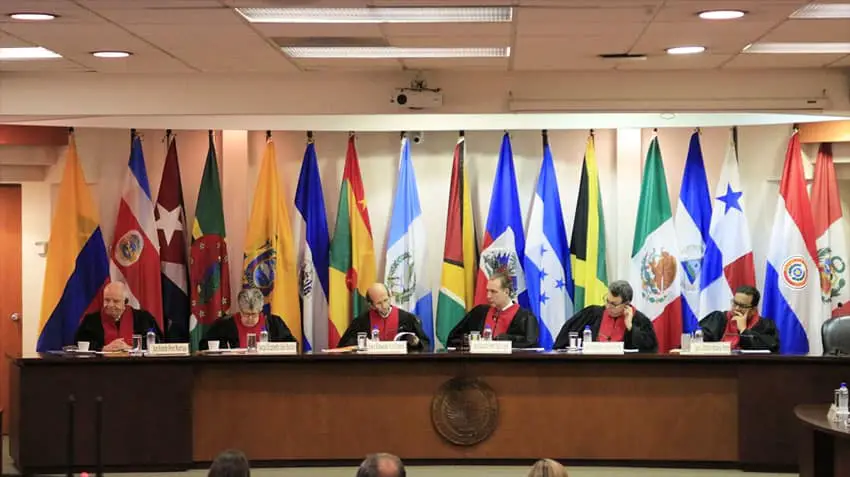A Supreme Court (SCJN) proposal to review and possibly abrogate a constitutional provision requiring that mandatory preventative prison must apply to accused perpetrators of certain crimes has been rejected by the federal government, which argues that the measure is essential to ensure that suspects don’t evade justice and continue committing offenses.
Two justices have put forward proposals to invalidate the stipulation for pre-trial detention, arguing that the article violates the principle of presumption of innocence and that preventative prison is a disproportionate measure. The SCJN will consider their proposals next month.
In a statement directed to “the people of Mexico” and the Supreme Court, the government said the existence of preventative prison is fundamental for certain crimes “to ensure that the alleged criminals detained for organized crime, serious crimes [such as homicide and rape] … or white-collar crimes don’t avoid … justice during the criminal process.”
The government said that its support for the constitutional provision allowing pre-trial detention takes into account the fact that detaining suspects often involves a “great effort of the state” in terms of “resources, intelligence and the deployment of forces.”
Preventative custody, the government added, prevents suspects from threatening and attacking victims and witnesses, continuing to commit crimes and “leading criminal activities that affect society.”
Signed by Interior Minister Adán Augusto López and presidential legal adviser María Estela Ríos González, the statement enumerated a long list of crimes to which mandatory preventative prison applies, including homicide, femicide, rape, sexual abuse of minors, organized crime offenses, kidnapping, human trafficking, home burglaries, illicit enrichment, fuel theft, firearm offenses and drug trafficking.
The constitution was modified in 2008 to allow mandatory preventative prison for certain crimes, but additional offenses have been added since then.
“Leaving the decision about whether to apply preventative prison in the hands of judges would generate additional pressure on those who impart justice, exposing them to corruption and violence due to the kinds of crimes to which this figure applies,” the government said.

“We ask the country’s highest court … to consider the country’s public security, the victims of crimes, the fight against impunity and the enormous effort that criminal prosecution involves,” when considering whether to invalidate the pre-trial detention provision, it said.
Interior Minister López said Thursday that the court’s proposal to outlaw the provision posed a threat to the federal government’s security strategy, which somewhat paradoxically entails a commitment to end impunity while simultaneously avoiding confrontation with criminal groups.
“We believe that international conventions can’t be above our constitution,” he said. “If this proposal was declared viable, it would put an end to the country’s entire security strategy, and I don’t think that Mexicans deserve that.”
López expressed optimism that the SCJN would take the government’s view into account. “Surely, [the justices] will read our statement carefully and [then] take their decision,” he said.
For his part, Deputy Security Minister Ricardo Mejía highlighted the risk of corruption. Allowing judges to decide, on a case by case basis, whether pre-trial detention should apply could lead to multiple cases of corruption, he said, suggesting that wheeling and dealing between judges and lawyers would be common.
The absence of mandatory preventative prison “would also increase danger, … for judges, victims that dare to denounce crimes, [and] witnesses,” Mejía said. “Above all, it represents a threat to society because these individuals, on the loose, will continue carrying out their criminal activities.”
Olga Sánchez, a ruling party senator and President López Obrador’s former interior minister, was among several other people who weighed in on the preventative prison debate. She said the list of crimes for which pre-trial detention is mandatory is too broad.
“For example I think it’s absurd that home burglary and other minor crimes are subject to preventative prison,” she said. “I believe that there are some crimes that must be subject to preventative prison … but crimes were added indiscriminately to article 19: transport theft, burglaries, some other crimes.”

One person in favor of pre-trial detention being scrapped is Saskia Niño de Rivera, president of Reinserta, a civil society organization that helps ex-prisoners reintegrate into society. In an online video message, she noted that some suspects remain in pre-trial detention for years without the opportunity to clear their name.
Niño de Rivera said she personally knew of people who have spent as long as 18 years in jail without facing trial. “In Mexico, [suspects] are guilty until the opposite is proven.”
She also said that people unable to afford legal defense are more likely to end up in preventative prison in cases in which judges have the discretion to decide whether to incarcerate suspects or not.
“Who are we putting in jail? … Those who have access to [legal] defense aren’t in jail. … The majority of people in [preventative detention] … are people who didn’t have access to justice,” she said.
“Forty-seven percent of people in prison have been waiting for years for their culpability to be determined,” she wrote on Twitter.
In another Twitter post, Niño de Rivera indicated that she was puzzled by the interior minister’s remark about the threat to the government’s non-confrontational security strategy. “I’m so confused. ‘Hugs, not bullets’ is an ideology that goes against preventative prison,” she wrote.
In an opinion piece published by the Reforma newspaper, two National Autonomous University (UNAM) legal researchers also argued against pre-trial detention, asserting that it’s overused.
“This precautionary measure to incarcerate people without a sentence has been used disproportionately and indiscriminately under the false promise of providing security and combating impunity,” Juan Jesús Garza Onofre and Javier Martín Reyes wrote. “Today the jails are full of alleged culprits, individuals that don’t have a sentence but are deprived of their freedom.”

The UNAM researchers noted that the Inter-American Court of Human Rights has made it clear that mandatory preventative custody is a violation of due process, the presumption of innocence and personal freedoms. If the SCJN invalidates the constitutional provision that allows it, thousands of prisoners could benefit, they wrote.
Garza and Reyes criticized López Obrador for “muddying” the debate about preventative prison through his “eagerness to defend the [growing] catalogue of ‘serious crimes.’”
“He misinforms citizens and allows simple rhetoric to substitute serious debate,” they wrote. “… Instead of promoting measures oriented toward the prevention of crime and the strengthening of police and prosecutor capacities, the López Obrador administration, refusing to accept its failed security strategy, resorts to the heavy-handed [approach] … and perpetuates the worst legacy of penal populism.”
The researchers criticized the government’s statement in support of pre-trial detention, asserting that it was a document “without a single legal argument, which crudely lies by saying that mandatory prison is ‘fundamental’ to avoid the flight of the accused and to protect victims, as if all this wasn’t possible with discretionary pre-trial detention.”
The latter is discretionally imposed by a judge in cases where the suspect is considered a flight risk and/or danger to the community, whereas mandatory pre-trial detention applies automatically to people accused of certain crimes.
In a Twitter post, Melissa Ayala, a lawyer, suggested the government has forgotten about the discretionary measure.
“Reminder that discretionary pre-trial detention exists,” she wrote. “Why don’t they want to let mandatory [pre-trial detention] go?”
With reports from El Universal
